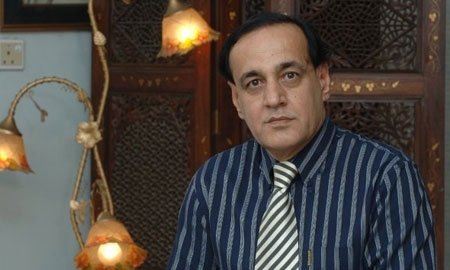Some patients require daily medication and pay five times as much on the black market due to an ongoing drug shortage. Those who have been trading pharmaceuticals wholesale for the last two decades confirm that the goods now cost several times more than just a year ago.
Pakistan’s soaring drug prices leave patients scrambling. Many struggle to afford medicine, and many of them turn to the black market as the economic crisis crushes small pharma plants. The prices are very unpredictable.
Black market traders can provide their customers with any pharmaceutical product. They deliver the ordered drugs or medicine at their doorstep. These medicines are especially circulating at local medical stores and pharmacies in small towns without any restrictions on prescriptions.
Now, the shortage and disappearance of drugs is a new challenge. The drug mafia makes money from shortages. One of the reasons for the crunch is the ongoing inflation.
Pakistan is forced to import the majority of medications or at least their active ingredients from abroad, and with the value of the rupee falling, it is becoming harder for Pakistani companies to buy them from foreign producers.
Now we have a situation where several important medicines are becoming scarce or unavailable in the Pakistani market. Moreover, immoral traders stockpile medicine so they can sell it at a massive profit during shortages. In 2023, drug regulatory officials raided multiple locations to discover medication storage rooms in various parts of Pakistan.
However, the latest blow to patients trying to obtain medicine came in April this year, when the Pakistani government approved a rise of up to 20% in retail prices of general medicines and 14% for essential ones, prompting immediate criticism from drug manufacturers who said the increases were too small. The decision, which came into force in September, directly affected over 80,000 drugs.
The government decision followed a standoff with importers and manufacturers, whose associations have been demanding an across-the-board 39% rise, warning that the industry could otherwise collapse.
The move aimed at ensuring the continuous availability of drugs and raw materials for manufacturers in Pakistan. Approving drug price hikes is not rare. During the past five years, the Pakistani government has given 15 such approvals. However, such a steep increase, combined with import troubles and the stockpiling of medicine, seems to have backfired.
The latest decision has caused the shortage and disappearance of over 200 medicines including lifesaving and essential drugs, and seriously rattled the public. Even hospitals are affected. Around 100 lifesaving drugs are not available in hospitals for patients.
Pakistan’s Pharmacist Association says the country of over 240 million people has some 4,000 licensed pharmacies. At the same time, there are as many as 100,000 other illegal merchants selling medications.
While the black market is booming, Pakistan’s domestic pharma industry is struggling. Before the latest crisis, Pakistan has at least 600 registered manufacturing units in various parts of the country. However, domestic manufacturers are still heavily dependent on foreign suppliers. Pakistan imports 90% of the raw materials for drug production from different countries.
We are not producing even a single standard medicine domestically. The medicines produced by local and international companies are no match for international pharmaceutical standards and their export to the outside world is not possible.
Moreover, the current economic crisis has also put the survival of these manufacturing units at risk. Around 200 small manufacturing plants stand shut down completely due to the ongoing inflation and the financial crunch across the country.
Ensuring safe, effective, and affordable medicines and vaccines is an integral component of the Sustainable Development Goals (SDGs) to reduce future morbidity and mortality across the country. Is the government thinking to do something about it?







